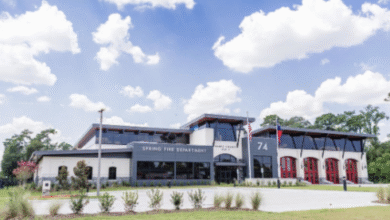Enduring the Storm: Cultivating Resilience and Deep Connection in LGBTQ Relationships Amidst Societal Shifts

Key Takeaways
- Understanding the unique aspects of LGBTQ relationships can lead to stronger connections.
- Communication and mutual respect are foundational in LGBTQ partnerships.
- Seek supportive communities and resources to bolster relationship strength.
Laying the Foundation for Strong LGBTQ Relationships
Creating a robust foundation in LGBTQ relationships involves more than just surface-level compatibility. It necessitates a thorough examination of and acceptance of each partner’s own identity and life experiences. This recognition of individuality is paramount for fostering respect and appreciation within the relationship. The diverse histories and personal battles that each brings can significantly enrich the couple’s shared experiences, providing depth and resilience to the partnership.
Such foundations also discount the notion that legal and societal structures do not apply to LGBTQ partnerships. Engaging inequitable legal practices, like creating a settlement agreement Brick NJ, fortifies this commitment to equality and mutual respect. Ensuring that both partners’ rights and contributions are acknowledged in legally binding documents demonstrates building a strong base for the relationship’s future.
Effective Communication Strategies for LGBTQ Couples
Clear, open, and honest communication acts as the cornerstone of any thriving partnership, and this is especially true for LGBTQ couples navigating societal stereotypes and pressures. It’s vital to cultivate an atmosphere where both partners feel safe to voice their feelings and perspectives without judgment. Regularly scheduling time to discuss individual goals, hopes, and boundaries can prevent misunderstandings and reinforce each partner’s role in the relationship.
Delving into expert-suggested communication techniques can be highly beneficial. These methods often include active listening, using “I” statements to express feelings, and taking breaks during heated discussions. Such strategies enhance understanding, ensure both partners feel heard and validated and foster a supportive and nurturing environment.
Finding Support in LGBTQ Communities
LGBTQ individuals and couples often find solace in supportive communities, where shared experiences and struggles provide a safe space for personal and relational growth. Engaging in LGBTQ-focused groups, in-person gatherings, or digital networks can provide a sense of belonging and affirm their identities. These groups offer practical advice, empathy, and solidarity, especially in areas where LGBTQ rights are less recognized. These connections are crucial for nurturing and sustaining loving partnerships, reducing feelings of isolation, and promoting a sense of community.
Celebrating Diversity Within Relationships
The vibrancy within LGBTQ relationships often stems from the diverse tapestry of cultures, beliefs, and experiences that partners bring to the table. Instead of pursuing a one-size-fits-all approach to relationships, embracing and celebrating these differences can foster an environment of growth and love. These qualities add layers and nuances to the relationship, whether through cultural traditions, shared hobbies, or differing worldviews.
Couples can celebrate diversity by learning from each other and embracing change as part of their growth journey. This will allow them to find joy in each other’s uniqueness and nurture an enduring connection based on respect and understanding.
Legal Awareness and Protection for LGBTQ Couples
Navigating the legal complexities that can impact LGBTQ couples requires heightened awareness and proactive measures. Knowing the legal landscape can help avoid pitfalls and ensure the partnership is recognized and protected by law. Marriage rights, property, healthcare, and parental responsibilities require careful consideration.
Couples should seek legal counsel to understand their rights better and ensure all required legal safeguards are in place. Whether it involves drafting a will, securing parental rights, or understanding the implications of joint property, being informed allows couples to make decisions that safely guard their future.




